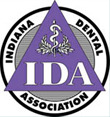Dental Cleanings
Routine dental cleanings are important to maintaining good oral hygiene. Professional cleaning by a hygienist can remove mineralized plaque that may develop even with careful brushing and flossing, particularly in areas that are difficult to reach. It is recommended you go in for a cleaning once every six months.
How it's done
You can expect your dental cleaning to last between 30 minutes and an hour. Typically, a trained hygienist will do the cleaning, and a dentist may come in for an exam at the end. Most people find that dental cleanings are painless, and do not cause any discomfort.
There are two important steps to a dental cleaning. The first step is scaling the teeth, whereby the hygienist will remove the plaque and tartar from the tooth surfaces. This can be performed by hand or with electric scalers depending on the hygienists preference.Typically, the hygienist will also clean into the pockets of the gums to remove any plaque buildup there.
The second step is polishing to remove any final plaque and buff the teeth. Polishers generally have several different sized heads to clean hard to reach places.
Deep Cleanings
In some cases the dentist and hygienist may recommend a deep cleaning to treat your gums. The dental term for a deep cleaning is scaling and root planing. This treatment is needed when there are deep pockets in the gums around the teeth where there is plaque and buildup stuck to the roots of the teeth. These pockets create a chronic situation where there is infection and inflammation in the gums. In time this leads to bone loss which causes the teeth to become unstable. Eventually this can lead to the need to extract teeth. The goal of a deep cleaning is to remove these deposits and smooth the roots to stop this infection in the gums and halt the progress. Usually it is necessary to numb the teeth and gums before this procedure so that it is comfortable for the patient.











